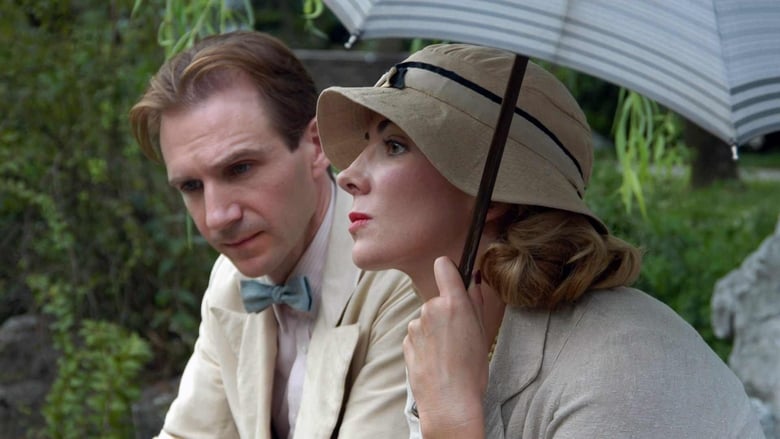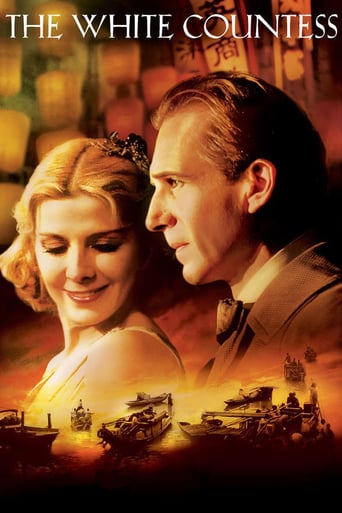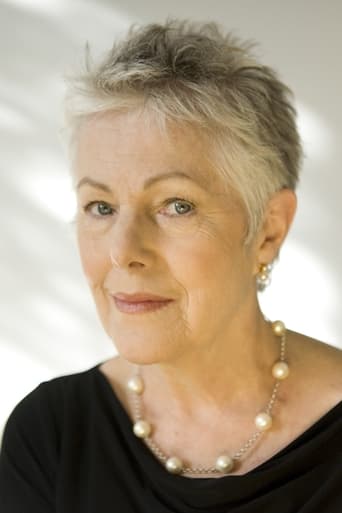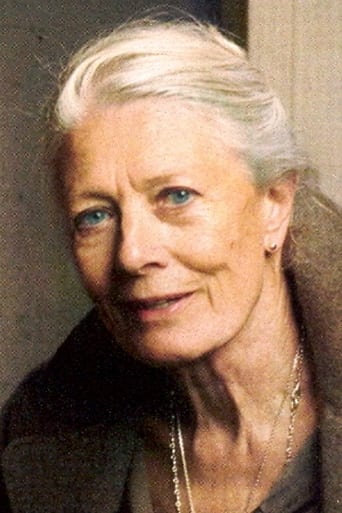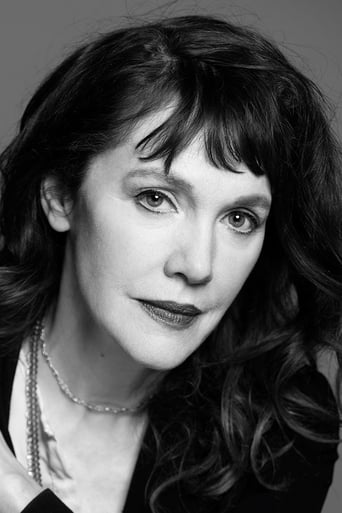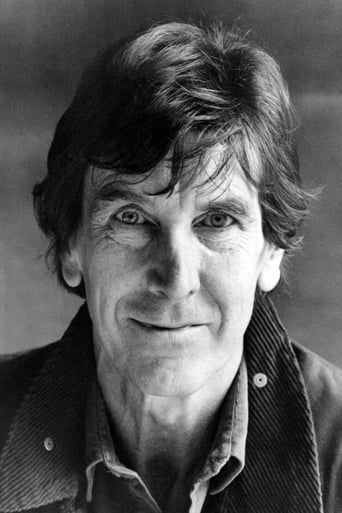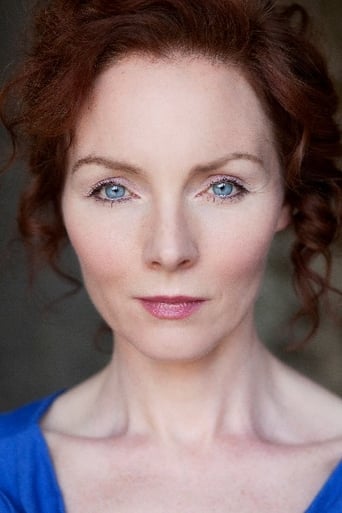In 1930s Shanghai, 'The White Countess' is both Sofia—a fallen member of the Russian aristocracy—and a nightclub created by a blind American diplomat, who asks Sofia to be the centerpiece of the world he wants to create.
Reviews
An absolute waste of money
If the ambition is to provide two hours of instantly forgettable, popcorn-munching escapism, it succeeds.
Not sure how, but this is easily one of the best movies all summer. Multiple levels of funny, never takes itself seriously, super colorful, and creative.
This movie tries so hard to be funny, yet it falls flat every time. Just another example of recycled ideas repackaged with women in an attempt to appeal to a certain audience.
The White Countess is a film directed by James Ivory that features Ralph Fiennes and Natasha Richardson together with Vanessa Redgrave,Hiroyuki Sanada,Lynn Redgrave,Allan Corduner and Madeleine Potter. The screenplay by Kazuo Ishiguro focuses on a disparate group of displaced persons attempting to survive in Shanghai in the late 1930's.Todd Jackson is an American expatriate living in Shanghai. While Jackson was once an American diplomat who came to Shanghai with great optimism about China's future, the bitter political squabbling and military violence that are a part of daily life in China caused him to become bitterly disillusioned. Jackson also lost most of his sight, and he has retreated into Shanghai's decadent underworld of bars and brothels rather than face the world. When a wager on a horse race wins Jackson a small fortune, he decides to indulge a long-time fancy and build the perfect Shanghai bar, one that would ideally reflect that corrupt beauty of the city, and he is joined in his project by Matsuda, a Japanese man with a mysterious past and an appreciation for Shanghai's underbelly. While assembling his pet project, Jackson meets Sofia, a Russian countess who fled her home during the revolution and now lives in Shanghai, supporting her family as a dance-hall girl and occasional prostitute. In Sofia, Jackson discovers a fusion of beauty and tragedy that fascinates him, and he asks her to become the hostess at his new bar. As Jackson becomes closer to Sofia, his cynicism begins to wear away and he develops a deep concern for Sofia and her family.This is a beautiful and moving film.But sadly,it falls short of being a great one because it never allows us into the hearts of its primary protagonists.Its high production values and fine performances should be credited but its lifeless story will fail to engage the viewer.
This, the last of the Merchant/Ivory collaborations, is a long, rich and well-crafted film, a fitting finale to the collaboration of these two. It is perhaps a little too long and doesn't quite fit together, but the rich visuals, the intriguing characters, the evocation of time and place, the richly effective musical score and the fine, nuanced acting pull you right in and keep you watching, just as all of their films have done.As I say, one of the strengths of the film is the acting, by the Redgraves, mother, daughter and aunt; by the supporting cast, and by the lead actor. The Redgrave sisters, Vanessa and Lynn, give a splendid evocation of exiled Russians, perhaps from the experience of playing Chekov. Venessa's daughter Richardson is less successful: though she is beautiful and intriguing in the part, her attempt at a Russian accent is really awful.Fiennes gives an insightful performance as a recently blinded man who has lost his family under tragic circumstances. I had blind parents, grew up around blind people and am legally blind myself (partially sighted) so I must say that though his interior life is spot on, his playing "blind" is really inaccurate and unbelievable, both as the character in unfamiliar and in familiar surroundings. This may be partially the fault of the screenplay. First, a small detail: no blind person can eat with chopsticks. It's impossible! Secondly, his inconsistent use of a walking stick as a cane. A short stick like that would give him next to no information concerning what is in front of him and would be essentially useless, except as a prop; as an actor, Fiennes' use of it is inconsistent and not accurate. Third, when the character expresses a desire to "see" the Countess's face by feeling it...well, I'm sorry, but NO blind person does that! In fact the idea is quite abhorrent, even offensive to us. This only happens in the movies and it provides one of the few false moments in the picture.The other false moment is his mad dash through the crowded Shanghai streets to find the Countess. It is wildly melodramatic, way over the top and unbelievable. Again, this is the screenplay's fault. Fiennes tries to downplay the melodrama by underplaying, but it still comes across as false.My other problem with Fiennes' performance is that he plays the character as a modern American man, not as an upper class American of that time, much too, well, "Kevin Kostner". This character is upper class with money, an American diplomat. If this were a 1930s picture I CAN imagine an Englishman playing him, but he would be more like Ronald Colman or Robert Donat. If an American of that time were to play this character, he would be Tyrone Power, not Humphrey Bogart. Though Bogart did in fact come from an upper class New York family, he almost never played that in the movies.Among modern American actors, I think only Kevin Kline could play this character accurately, with the right speech and manner, as a well educated, upper class American of the early 20th century. Most other American actors of his generation just lack the technique to pull it off.Within the choices he made, Fiennes does very well. His American accent is quite consistent and very good, though occasionally he speaks his lines using English "speech melody" rather than authentic American intonations.Overall, I found this to be a satisfying picture, telling a good story on a large, rich canvas, in the Merchant/Ivory tradition, a fitting ending to their collaboration.
The time is 1937, place Shanghai,China, The International Settlement. China is in turmoil,, Japan is about to enter Shanghai.The peoples are the exiles & refugees from all over the world.We are concerned with a family of White Russians (the Nobility who fled Russia nearly 20 years earlier. A Jewish father & his children who escaped Hitler in time. A ex-British diplomat now blinded, & assorted other exiles & an inscrutable Japanese business man.In the 1930's we had many films of this nature, filmed on the back lot, done in the usual Hollywood style. THis film was made in China.As typical of Merchant-Ivory films, the production values are near flawless. The acting by all is first rate.The cast headed by Ralph Fiennes as the blind ex-diplomat, Natasha Richardson as the exiled Countess, & her real life Mother &^ Aunt, Vanessa & Lynm Redgrave as exiled Russuian nobility. Natasha work with Ralph Finnes is the White Countess Restaurant Night club,obviously they do become attached. The final 30 minutes is about the exiles escape to safety..The film is long but the 135 minutes runs fast, excellent production values, & nice finale to a great production teamRatings: ***1/2 (out of4) 92 points (out of 100) IMDb (9 out of 10)
POSSIBLE SPOILERSLike most Merchant-Ivory films, "The White Countess" is set in an exotic location (in this case Shanghai in the mid-1930's on the verge of the Japanese invasion), and it proceeds at a leisurely pace. Again, like most Merchant-Ivory films, it has an excellent cast: Ralph Fiennes as a blind American ex-diplomat, Natasha Richardson as the title character, and Lynn Redgrave and Vanessa Redgrave as members of her Russian émigré family who are ashamed of the fact that she is earning money (which they are glad enough to accept) as a "dance hall girl" and presumed prostitute. The problem here is that the leisurely pace slows to a crawl and the events leading up to the Japanese takeover are observed at a distance through the interaction of Fiennes with a Japanese diplomat/spy/advance man played by Hiroyuki Sanada. Fiennes has opened his own bar/gathering place with race track winnings and named it The White Countess after the hostess he has hired away from another establishment. Sanada's character -- Matsuda -- helps Fiennes create the political tension that he considers necessary for his place to be successful. Although they are the principals, neither Fiennes nor Richardson distinguish themselves particularly, and Lynn and Vanessa Redgrave are strictly secondary characters. Sanada is, in my opinion, the most successful actor in the entire movie. That's another way of saying that the main story is utterly unconvincing and the principal actors seem merely to have gone through the motions. Neither Fiennes nor Richardson made me care about what is happening to their characters. The Japanese enter the city, the émigrés flee to an undetermined fate. Perhaps the book was more engrossing.
Top Streaming Movies











